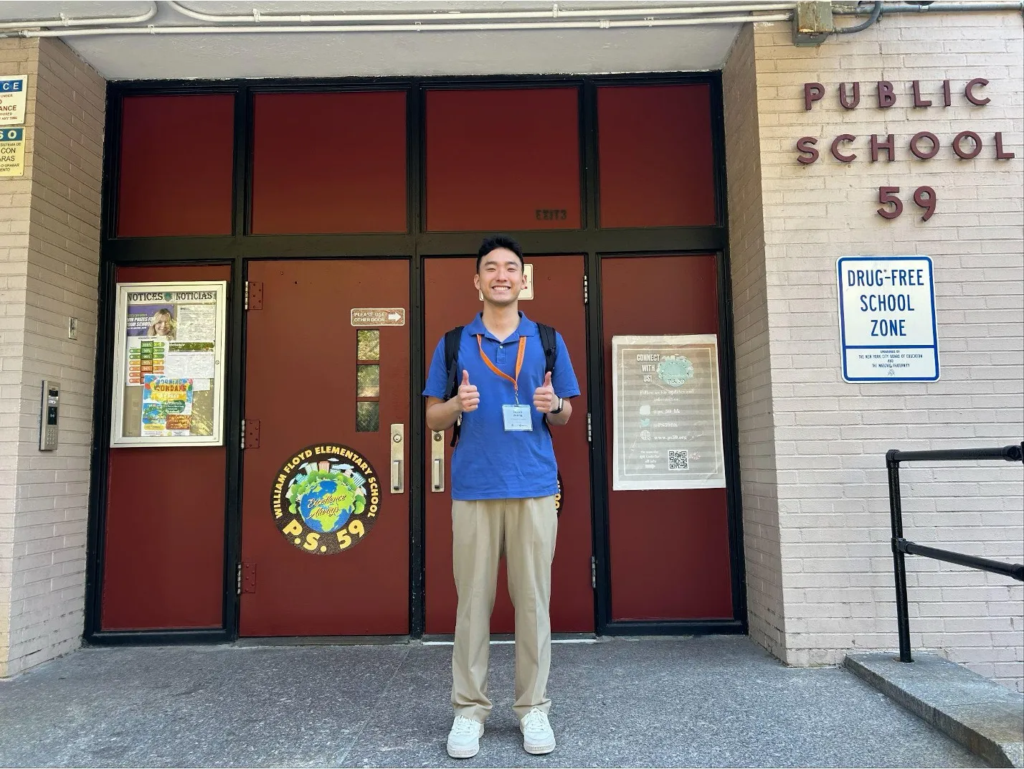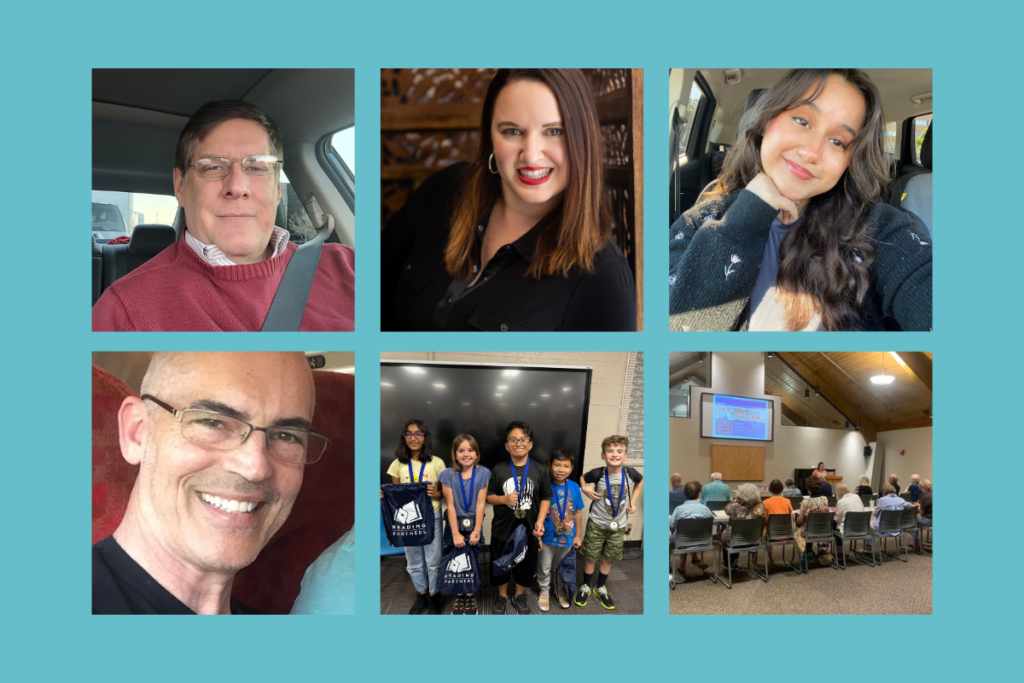Originally published in The New York Times
Educate a girl. Send a young person to college. Restore a person’s sight.

Credit: Joseph Assah Mills/Camfed
To understand the transformative power of education, consider a brilliant Zimbabwean girl named Angeline. Other students laughed at Angeline for attending school barefoot and wearing a torn dress with nothing underneath.
Officials shouted her name at school assemblies when her family was behind in paying school fees. “It was an epic humiliation,” she remembers. But what Angeline lacked in resources and wardrobe, she made up for in brain power: In the seventh-grade nationwide exams, hers was No. 1 in her district, and she had one of the best scores in the entire country.
Yet still she couldn’t afford high school — until Camfed gave her a scholarship, and then Angeline performed brilliantly. Today, Angeline Murimirwa, 40, is executive director of Camfed’s programs in Africa, helping 123,000 girls a year get an education.
I’ve followed Camfed for more than a dozen years, and one reason I chose it as my grand prize winner is that it’s close to a perpetual motion machine. Some 157,000 Camfed graduates pay it forward by mentoring girls and paying their fees (each graduate financially supports five students on average, not counting those in her own household). Camfed alumnae actually support more students than Camfed itself, a virtuous cycle that grows over time.
Supporting education is particularly important this year because the coronavirus pandemic is leading millions of girls to drop out of school, and the United Nations estimates that the pandemic may push 13 million girls into child marriages. Who wouldn’t rather give a girl an education than put one more present under a tree?
Send a young person to college. Another prize winner is OneGoal, which mentors low-income students in the United States, helping them graduate from high school and succeed in college. OneGoal ensures that Black lives matter: 96 percent of participants are students of color, and it provides a bridge for them to complete high school and get a solid start in college.
OneGoal supports 12,500 students, and 99 percent of them graduate from high school and 86 percent go on to college. Because first-generation college students sometimes flounder in their first year and leave without a degree, OneGoal supports them through that critical first year.
Melissa Connelly, 37, the organization’s chief executive, exemplifies the challenges some students face and how much difference a helping hand can make. One of six children in a dysfunctional home with a mom struggling with addiction, Melissa routinely skipped school and often ran away from home or was kicked out; she spent much of high school homeless.
As a Black girl earning D’s in school, she was pegged as hopeless and put in a truancy class — a babysitting program for problem kids until they dropped out. “I was that kid who was written off as a lost cause,” she remembers.
But Melissa’s white boyfriend was in Advanced Placement classes, and she protested the difference in education they were getting in the same school. She also had a superb social worker who guided her, and Melissa was able to talk her way into A.P. classes — and from then on earned straight A’s.
It took five years of attending four colleges, juggling tuition bills the whole way, to earn a B.A. She then earned two graduate degrees.
Mentoring programs like OneGoal are particularly important now because remote learning has been a catastrophe for children in chaotic homes without internet access. McKinsey & Company has warned that an additional one million kids may drop out of school during this pandemic. OneGoal is working hard to keep these kids on track, and it costs only about $1,600 to add a student to OneGoal for a year.
Restore a person’s sight. My final prize winner is the Himalayan Cataract Project, also known as Cure Blindness, which fights blindness in Asia and Africa. This, too, is a bargain: The surgery can cost as little as $25 per person, or $50 for both eyes.
The Himalayan Cataract Project was founded by Dr. Sanduk Ruit, a Nepali ophthalmologist who helped develop a cataract microsurgery technique (the “Nepal method”), and Dr. Geoff Tabin of Stanford University Medical School. I traveled to the remote town of Hetauda, Nepal, to watch the doctors perform the surgeries — and I’ve rarely seen anything so exhilarating.
After years of blindness, a 50-year-old woman, Thuli Maya Thing, was among those lined up for the operation. “I can’t fetch firewood or water,” she told me. “I fall down many times. I’ve been burned by the fire.”
A day after the surgery, I watched as her bandages were removed. She stood blinking, and then smiled giddily as she saw her surroundings for the first time in years. Doctors tested her vision and found it to be 20/20.
“I used to get around by crawling,” she said, “and now I can get up and walk.”
I’ve seen many humanitarian interventions all over the world, and there’s almost nothing so cheap, rapid and transformative as cataract surgery. It feels biblical, as the blind see again — and recover their lives.
The web page KristofImpact.org should make it effortless for you to support these three organizations and learn more about them. Focusing Philanthropy, a nonprofit I have partnered with, will process reader contributions through the web page and report back to you on results.
Focusing Philanthropy will also pay for the credit card transaction costs of your donation, so that 100 cents on the dollar will go to your designated charity.
Of course, this year many people are financially constrained, so I’m also recommending two options for those who would prefer to volunteer their time.
One is Reading Partners, which deploys adult volunteers who coach disadvantaged children in reading (during the pandemic, this is typically done by Zoom). More than 90 percent of Reading Partners children are kids of color, nearly all qualifying for free or reduced-price lunches.
Only 22 percent of third graders nationwide who receive free or reduced-price lunches read at grade level, but tutoring makes a huge difference. About three-quarters of third and fourth graders in Reading Partners are able to close the gap with their peers.
Reading is one of the most important tools a child needs, in school and in life, and a volunteer can provide that gift.
My other volunteer recommendation is Court Appointed Special Advocates, or CASA, which supports foster youth in nearly every county in the country. I recommend CASA because America’s foster care system is broken, and our 400,000 foster kids need help.
Only 58 percent of foster kids graduate from high school by age 19, and one-fifth are homeless within a year and a half of turning 18 and aging out of the system. By the age of 26, a majority of these young women and men have been arrested.
We can’t fix foster care overnight, but we can help these neglected kids negotiate a sometimes uncaring system — and that’s what CASA does. Volunteers provide support and advocacy for children who sometimes have no one else to trust, while helping them navigate the bureaucracy.
You can volunteer for Reading Partners or CASA through the same website, KristofImpact.org.
When I began these giving guides in 2009, they raised eyebrows. My colleagues and I wondered: Is it appropriate for a journalist to make such recommendations? Yet the suggestions filled a need. Many readers would like to be more generous but don’t know who to give to, while great nonprofits are desperate for support to change lives.
So I’m again playing matchmaker, at a time when the pandemic makes the needs more urgent. I hope you find that the chance to help others brings you some holiday cheer.
The Times is committed to publishing a diversity of letters to the editor. We’d like to hear what you think about this or any of our articles. Here are some tips. And here’s our email: letters@nytimes.com.
Nicholas Kristof has been a columnist for The Times since 2001. He has won two Pulitzer Prizes, for his coverage of China and of the genocide in Darfur. You can sign up for his free, twice-weekly email newsletter and follow him on Instagram. His latest book is “Tightrope: Americans Reaching for Hope.” @NickKristof • Facebook




